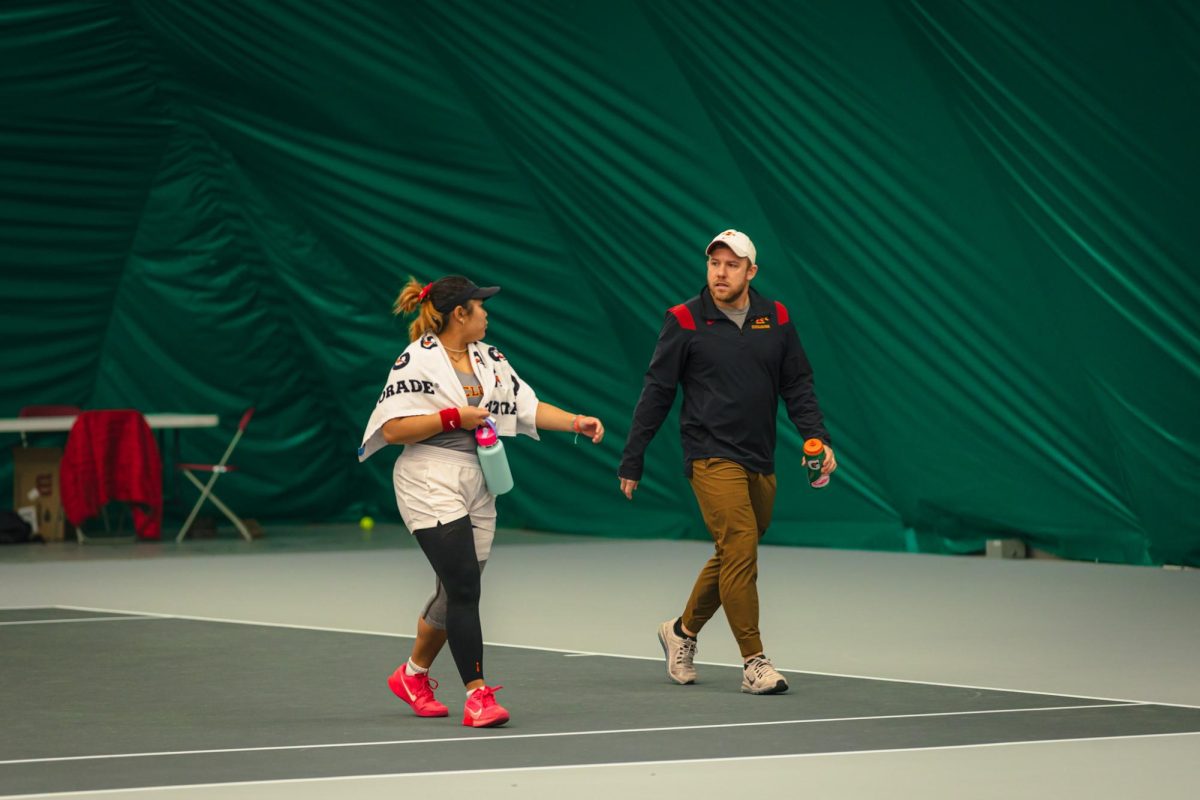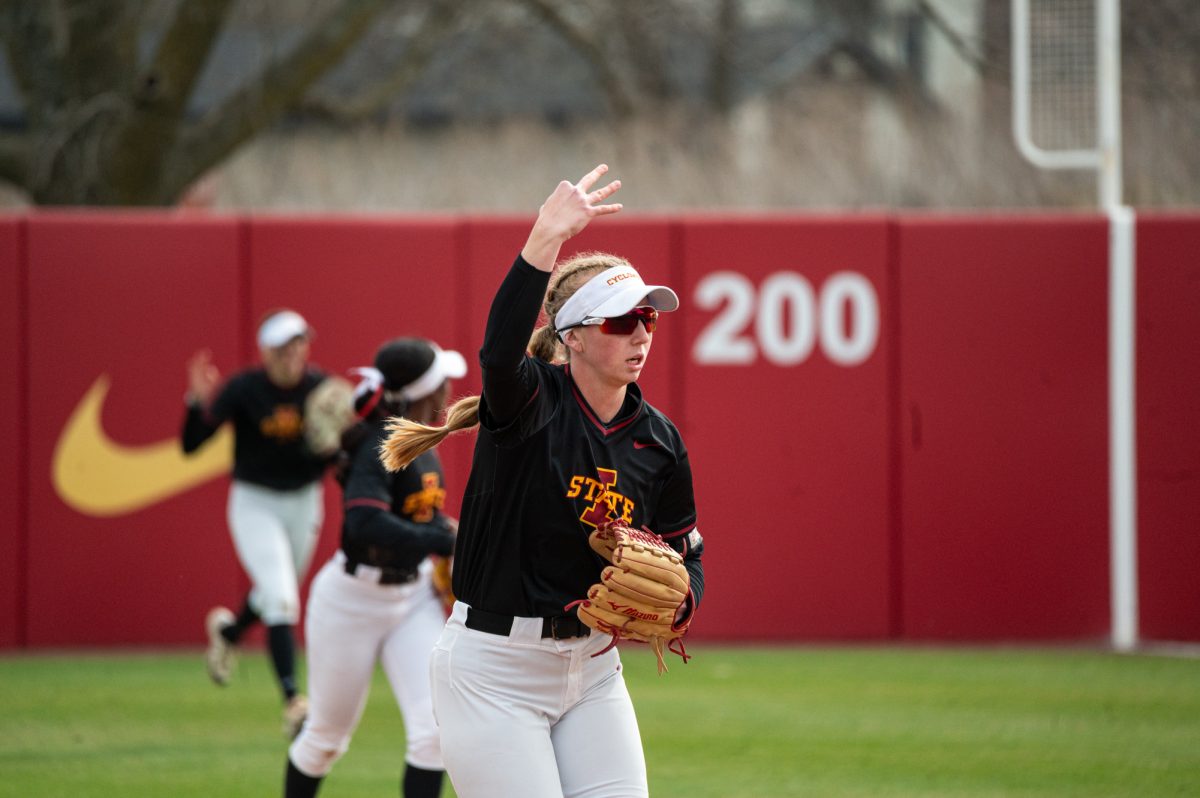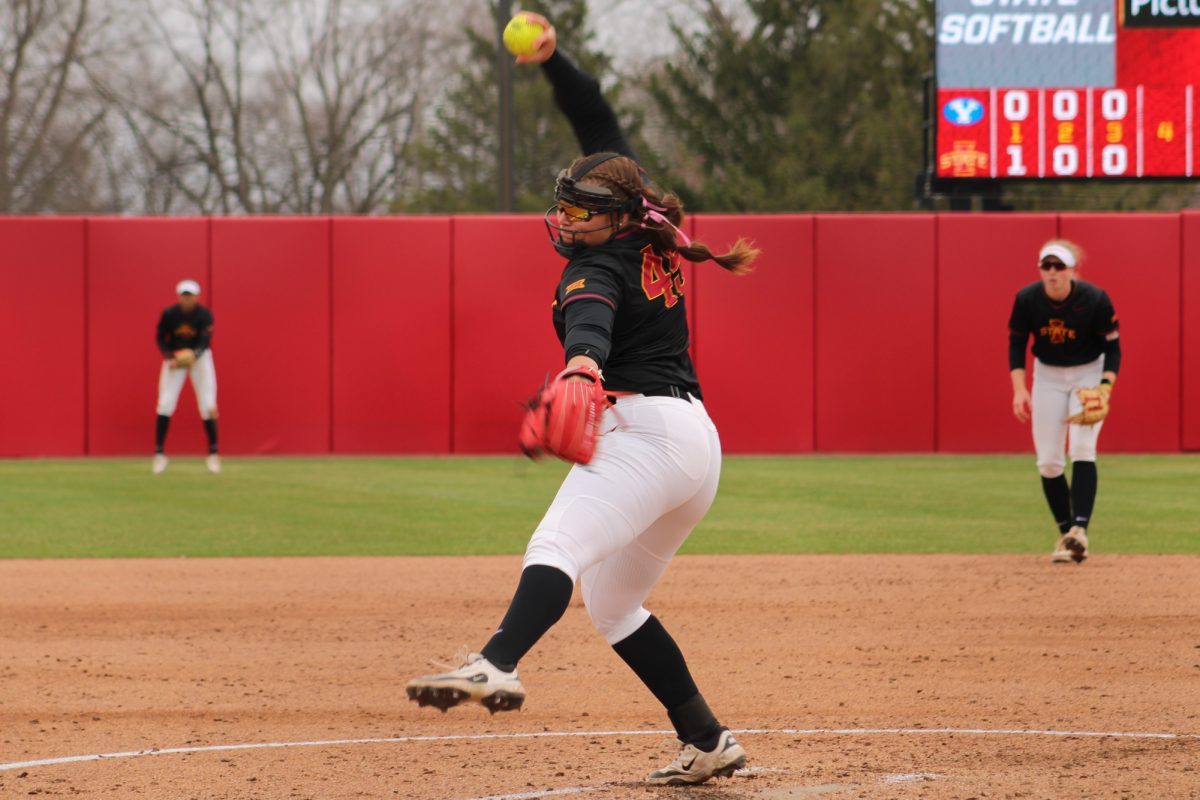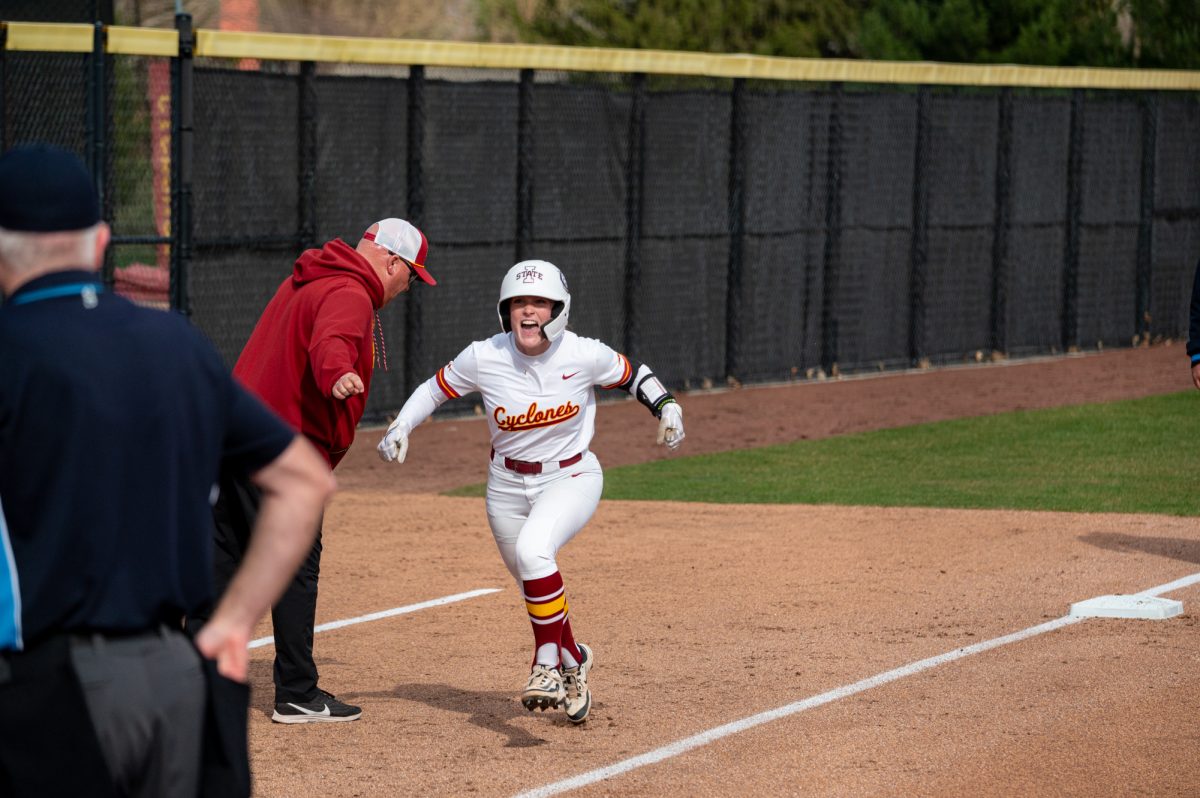4 ideas of family farming focus of lecture
February 26, 2008
Regeneration. Renewal. Sustainability. Change.
These topics reverberated loudly from the passionate presentation by author and retired University of Missouri professor John Ikerd in the packed Sun Room of the Memorial Union on Sunday night.
More than 150 students and community members sat captivated at the 2008 Shivvers Memorial Lecture as the speaker highlighted the reality of our agricultural needs.
“We can’t keep doing what we’re doing” Ikerd said. “Change is not an option, it is an absolute necessity.”
The change he referred to many times throughout the presentation was how individuals use the environment and its inhabitants.
“The age of the enlightenment back in medieval Europe saw animals, people and earth’s resources as a machine,” Ikerd said. “Well, the land is not a machine anymore, and we are not doing anything to give back to it.”
Regeneration, he said, refers to the use of solar energy produced by plants to give energy to make our land and resources last.
“Every useful activity is about energy,” he said. “We need energy to work, to use our cars, to power our machines, to build, and to sustain our economy.”
Ikerd said renewal means realizing that at the current pace in which we live and work, our natural resources will be depleted for future generations.
It was emphasized during the lecture that it is important to make sure the land is taken care of so it isn’t depleted.
Sustainability, he said, is investing in the people, nature and land that allow our survival. Ikerd specifically highlighted the definition of a “family farm” as being the kind of entity that can practice sustainability.
“The definition of a family farm includes taking care of each other, the community and the land,” he said.
This working triad would put focus on preserving the natural world for future generations.
He said change must be made in our approach to understanding and maintaining the economy.
“The economy is about competition, and competition is about individuals seeking the best way for their current way of life,” he said.
If individuals are the backbone of the economy, then changing their mindset is a way of adopting methods of sustainability and giving back to the environment what people take out, he said.
“Without an environment, we have no economy,” Ikerd said.
Being a slave to the economy, he said, would devalue the necessity of taking care of the land that provides our food and basic needs.
Ikerd emphasized how the importance of centers like the Leopold Center for Sustainability at Iowa State focuses on fulfilling the needs of the present without compromising future generations.
“What we are doing now is not sustainable,” he said.
Adopting methods of regeneration, renewal, sustainability and change are the answers to preserving the integrity of the land we depend on.






